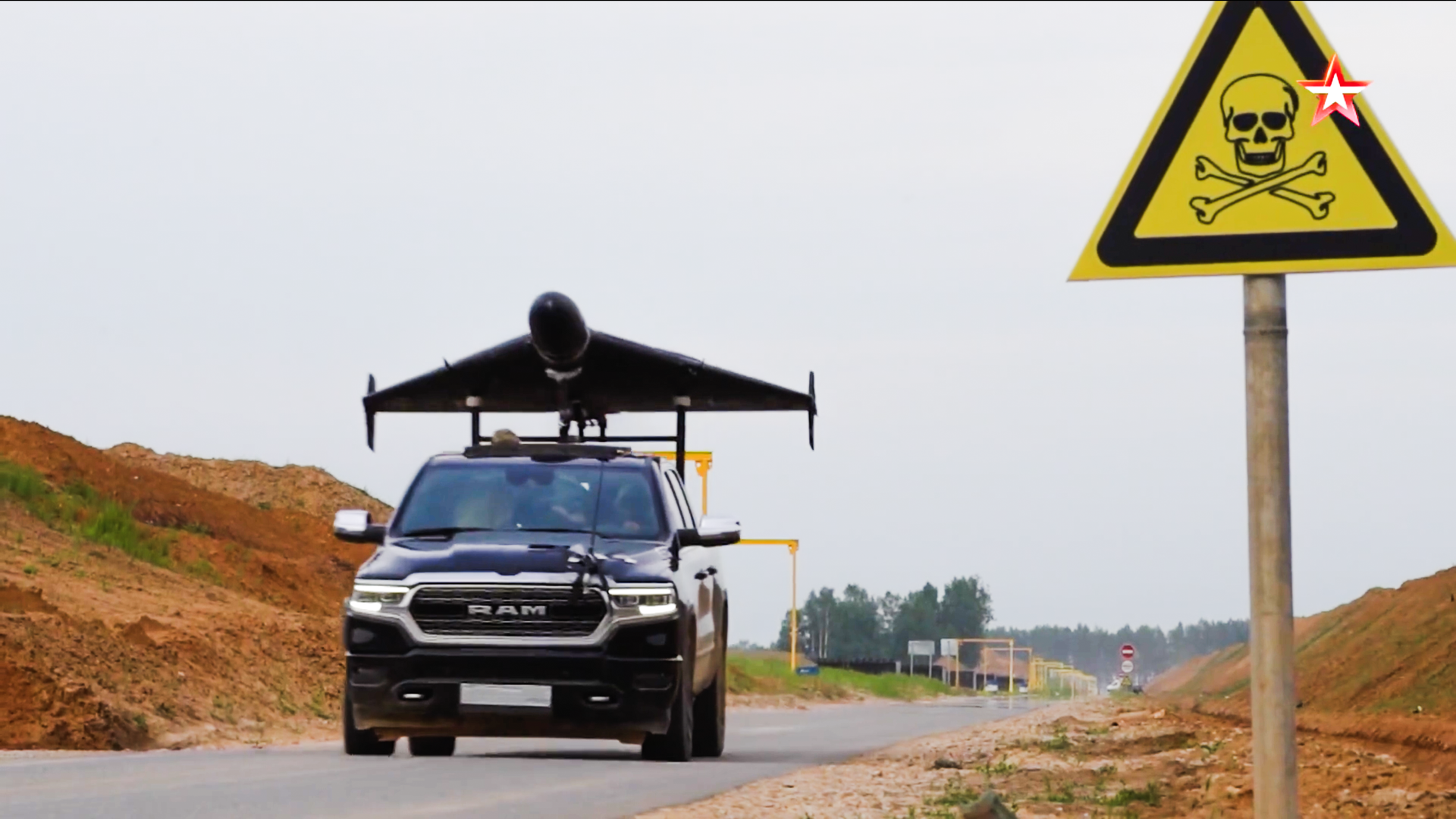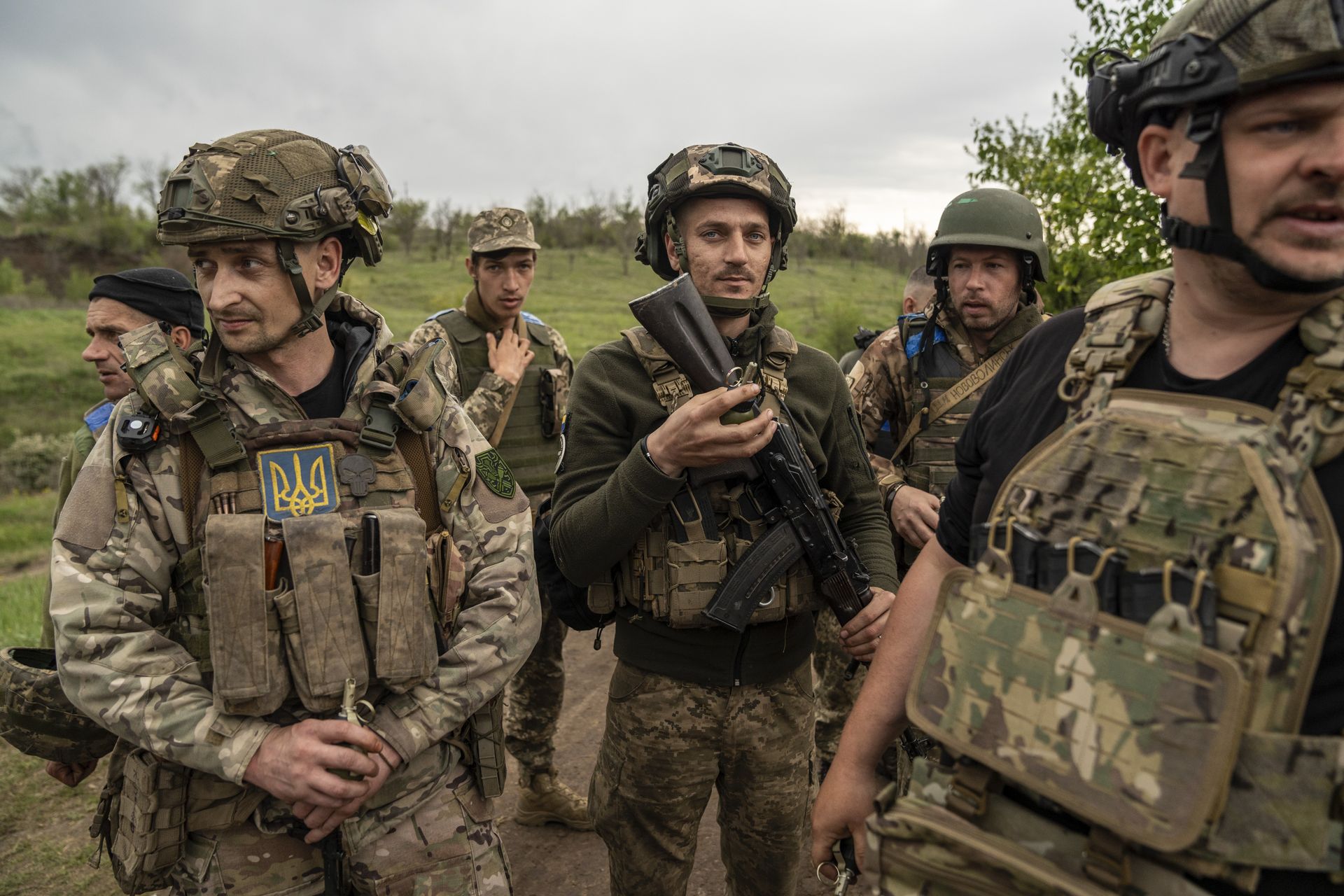Where Macron’s Ukraine rhetoric falls short of action

French President Emmanuel Macron in Cairo, Egypt, on April 7, 2025. (Ludovic Marin / Pool / AFP via Getty Images)
President Emmanuel Macron's hawkish and vocal advocacy for Ukraine's defense has gone hand-in-hand with the French avoidance or delay of taking part in joint initiatives to quickly arm the war-torn country.
A key reason, experts say, is France's drive to "Buy European" and boost the domestic defense industry weakened by decades of peace — an understandable long-term goal that nevertheless contrasts with Ukraine's urgent battlefield needs.
France has been an important ally to Kyiv, providing crucial weapons systems like jets and long-range missiles, as well as leading backchannel diplomacy with Donald Trump's White House.But as the war grinds on and U.S. support hangs in the balance, some critics say that France can – and should – do more.
France's drive to 'Buy European'
When U.S. President Donald Trump unexpectedly shifted course on Ukraine and approved the provision of weapons like Patriot air defense systems — on the condition that NATO allies pay for them — many in Europe applauded the move.
But the excitement was soon dampened by the news that France, one of Europe's leading military powers, would not be contributing to the initiative.
The chief reason seems to be Macron's push to strengthen France's own defense industry by purchasing domestically-made arms — even when urgent assistance for Ukraine is on the line.
A defense-industrial powerhouse, France is the world's second-largest arms exporter after the U.S., covering more than one-tenth of the global demand, according to the Stockholm International Peace Research Institute.
"France insists on buying European and not just in the case of Ukraine and of defense," Sebastien Maillard, an expert on French politics at Chatham House and the Jacques Delors Institute, told the Kyiv Independent.
"The reasons are not to over-rely on U.S. supplies (especially in the case of defense, where it can come with usage and export restrictions) and to use European taxpayers' money on European goods."

Francois Heisbourg, a security expert at the Paris-based Fondation pour la Recherche Strategique, argues that it makes little sense for France to join initiatives focused on Patriots, a system France does not operate.
"If one is buying an American kit, it probably makes more sense to go directly to the Americans, or to countries which actually already have that American kit," the expert told the Kyiv Independent, adding that the Patriot scheme is more suitable for Germany, the Netherlands, or the Nordic countries.
But this is not the first time that Paris's focus on "buying European" has stood in the way of joint initiatives for arming Ukraine.
France has allocated only about 0.7% of its GDP to Ukraine via both bilateral and EU contributions, placing it 13th — just below Germany and trailing far behind the Baltic and Nordic countries.
France raised similar objections during the EU's Act in Support of Ammunition Production (ASAP) project to provide Ukraine with 1 million artillery shells by the spring of 2024, shifting its position only when it became clear that Europe lacked the capacity to meet the deadline.
Paris has also long opposed an overhaul of the European Peace Facility (EPF) — the EU's main security assistance tool — that would allow member states to be reimbursed for aid sent to Ukraine even if the equipment was purchased from non-EU sources.
France eventually agreed to the change, which helped the Czech initiative buy shells for Ukraine on global markets. Though the French government promised to assist with the initiative, it did not publicly pledge any funds itself.

Macron's arguments to strengthen the European defense industry and reduce the reliance on the U.S. are often vindicated by Trump's own actions.
Trump has publicly cast doubt on NATO's Article 5 while his administration paused military support for Ukraine on three separate occasions, raising concerns in Kyiv and European capitals about Washington's reliability as a security partner.
But defense-industrial autonomy from the U.S. is a "medium to long-term objective, which may be incompatible with the urgency of the situation in Ukraine," says Pierre Haroche, an expert on European security at the Catholic University of Lille.
The gap between numbers and rhetoric
Following the Trump administration's March pause on military aid and his public clash with President Volodymyr Zelensky in the White House, Kyiv's European partners moved to reassure the war-torn country of their commitment.
To that effect, the EU's top diplomat, Kaja Kallas, unveiled a plan to supply Kyiv with up to 40 billion euros ($46.6 billion) in military aid, hoping to offset the temporary lack of U.S. support.
In another cold shower for Ukraine, France was among the EU members that blocked this plan, reportedly due to budgetary reasons.
"There is clearly a gap between France's political position, which is clearly — and even increasingly — in favour of robust, long-term support for Ukraine… and the relatively low level of France's material contribution,"
France, as well as Italy and Spain — the EU's second, third, and fourth largest economies, respectively — have long faced criticism for not pulling their weight in arming Kyiv. They have blamed the shortfall on fiscal reasons.
"France has been unable to adopt a clear budgetary policy since the summer 2024 dissolution of parliament," with the administration "mainly aiming to limit financial commitments," Haroche explains.

As of April, Paris had allocated 5.96 billion euros ($7 billion) in bilateral military aid to Ukraine, a little over half of Germany's contribution, according to the Kiel Institute for the World Economy.
The difference stands at 19.12 billion euros ($22.3 billion) and 29.74 billion euros ($34.7 billion), when total assistance, including contributions via EU initiatives, is taken into account.
This data shows France has allocated only about 0.7% of its GDP to Ukraine via both bilateral and EU contributions, placing it 13th — just below Germany and trailing far behind the Baltic and Nordic countries.
The figures are all the more glaring when contrasted with the rhetoric coming from the Elysee Palace.
"There is clearly a gap between France's political position, which is clearly — and even increasingly — in favour of robust, long-term support for Ukraine… and the relatively low level of France's material contribution," Haroche told the Kyiv Independent.
In contrast to his outreach to Putin in the early days of the all-out war, Macron has emerged as one of the most hawkish voices in the pro-Ukraine coalition. The French president was the first Western leader to call for the deployment of soldiers on the ground, an idea that later evolved into the coalition of the willing.
"The discrepancy between Macron's hawkish speech and the reality of what France is sending may rather come from the French arm industry's failure to rev up its production to the pace required," Maillard comments.
Like elsewhere in Europe, the French defense industry has struggled to reach the level of production needed to supply Ukraine after three decades of post-Cold War disarmament.
"There are bottlenecks which make it impossible to provide this or that kind of weapon in the quantities which would be necessary," Heisbourg says.
For example, it used to take up to 40 months — the entire duration of the full-scale war — for an SAMP/T air defense missile to go from order placement to delivery, the expert says.

But while the French defense industry is catching up, peacetime bureaucracy continues to hamper the process.
"The whole system was designed for peace. It was not designed for war," Heisbourg says. "Time was not of the essence (before the war in Ukraine). What was of the essence was to get the best deal from the subcontractors."
Even if that bottleneck can be attributed to decades of the defense industry operating without the pressures of wartime production, the expert argues that it doesn't mean France cannot funnel more cash into Ukraine's defense industry.
"The money is for Ukraine to spend. If Ukraine wants to use French military financial aid, it should be able to do so to acquire what it considers to be useful," he says.
"We could be giving more money, and we should be giving more money."
Despite criticism, France delivers on key fronts
Facing scrutiny over the gap between Macron's rhetoric and the actual scale of aid, Paris has shifted its focus to a more "avant-garde dimension of its deliveries," Haroche said.
France was one of the few countries that — unlike Germany — provided Ukraine with its long-range missiles and fighter jets, SCALP and Mirage 2000, respectively.
Paris is also spearheading the artillery coalition for Ukraine with its supplies of Caesar howitzers. Other key systems that are now part of Ukraine's arsenal include an SAMP/T air defense battery or AMX-10RC armored fighting vehicles.
"France has been at the forefront of the sanction strategy on Russia and Belarus; France is shipping equipment, intel, and ammunition to Ukraine," says Cyril Bret, a defense and security expert at the Jacques Delors Institute.


Bret argues that the criticism Macron gets for his foreign policy is often overblown, pointing out that, unlike other EU countries, Paris has active military commitments elsewhere in the world.
Separate from arms deliveries, Macron has been a key figure in the diplomatic domain.
Along with the U.K., France remains the leading force of the coalition of the willing, an allied initiative aiming to provide post-war security guarantees to Ukraine, including a possible deployment of European peacekeepers.
According to the Washington Post, Macron has been "especially helpful" behind the scenes in helping sway the White House toward backing Ukraine after months of rocky ties.
But as long as domestic issues persist — from industrial bottlenecks to fiscal concerns — the French support for Ukraine will continue to hit roadblocks.
"The French have still not resolved the tension between strategic objectives, industrial objectives, and budgetary constraints," Haroche concludes.
"I think that France's political position in favour of fully integrating Ukraine into Europe's security architecture is entirely sincere, but France needs to find a way of resolving the contradictions."

Note from the author
Hi, this is Martin Fornusek. I hope you enjoyed this article.
At the Kyiv Independent, our team is committed to delivering clear, in-depth reporting and analysis on European politics and Ukraine's ongoing resistance against Russian aggression.
This work is only possible thanks to the support of readers like you. If you value independent journalism, please consider joining the Kyiv Independent's community.












